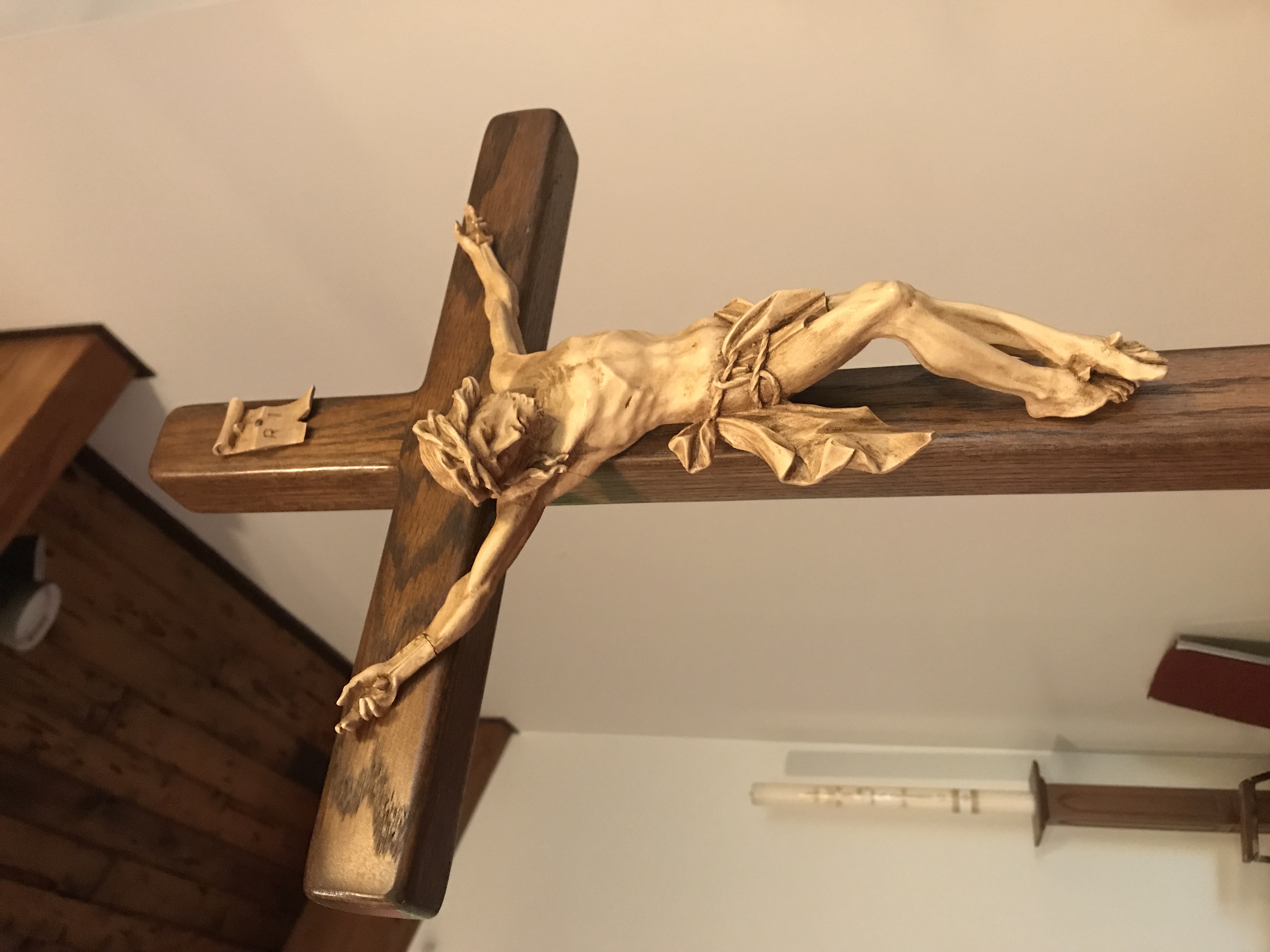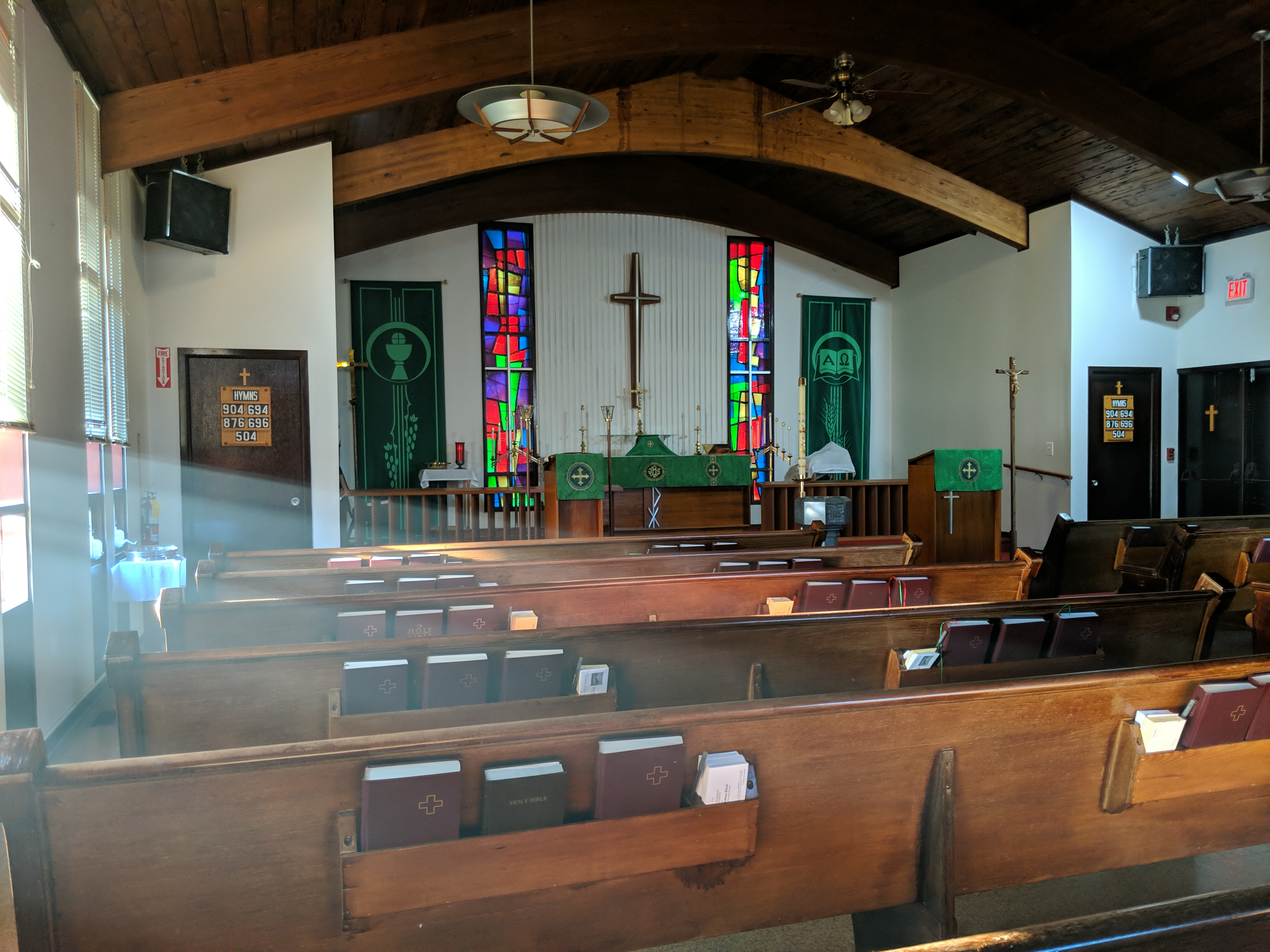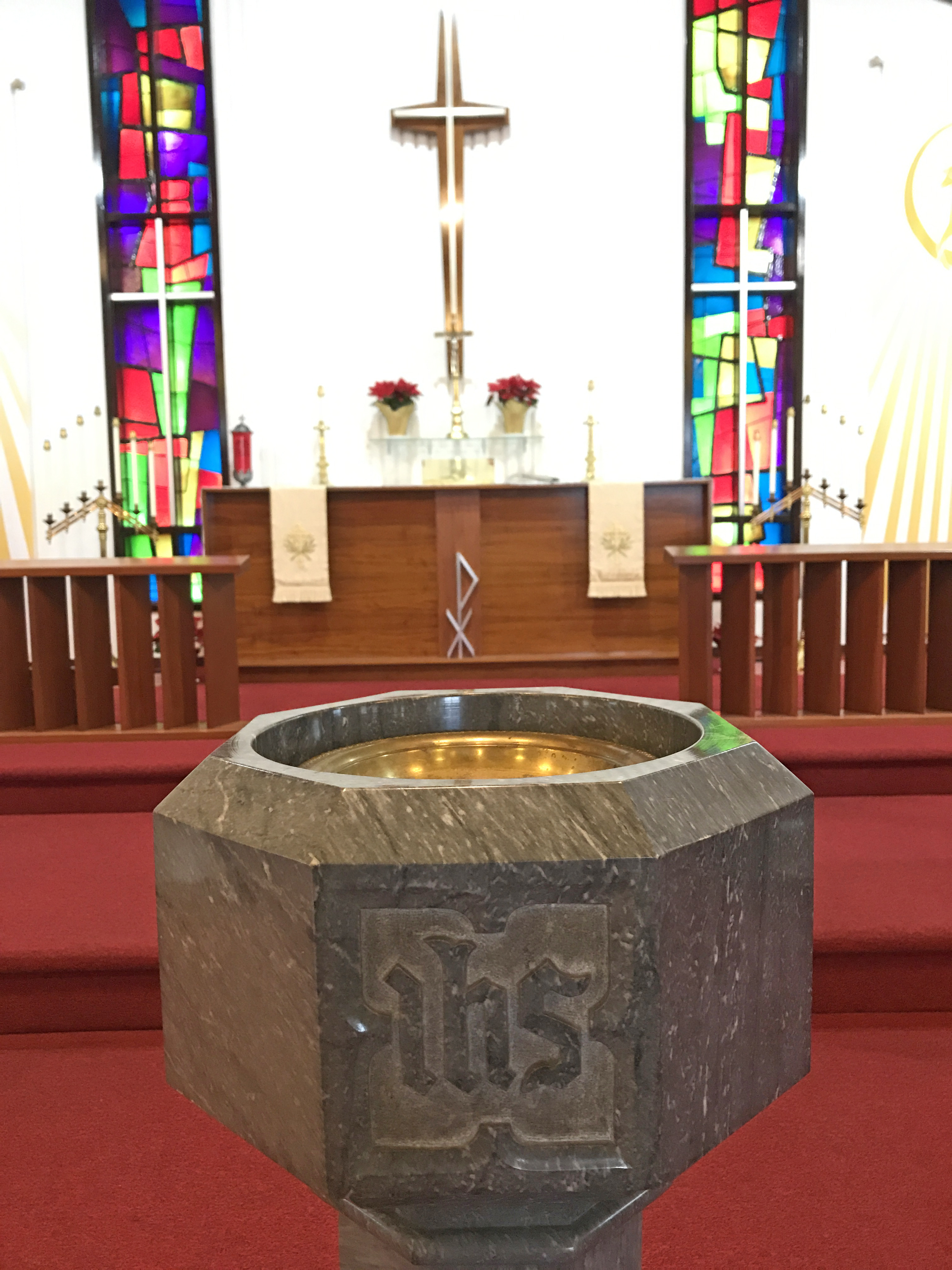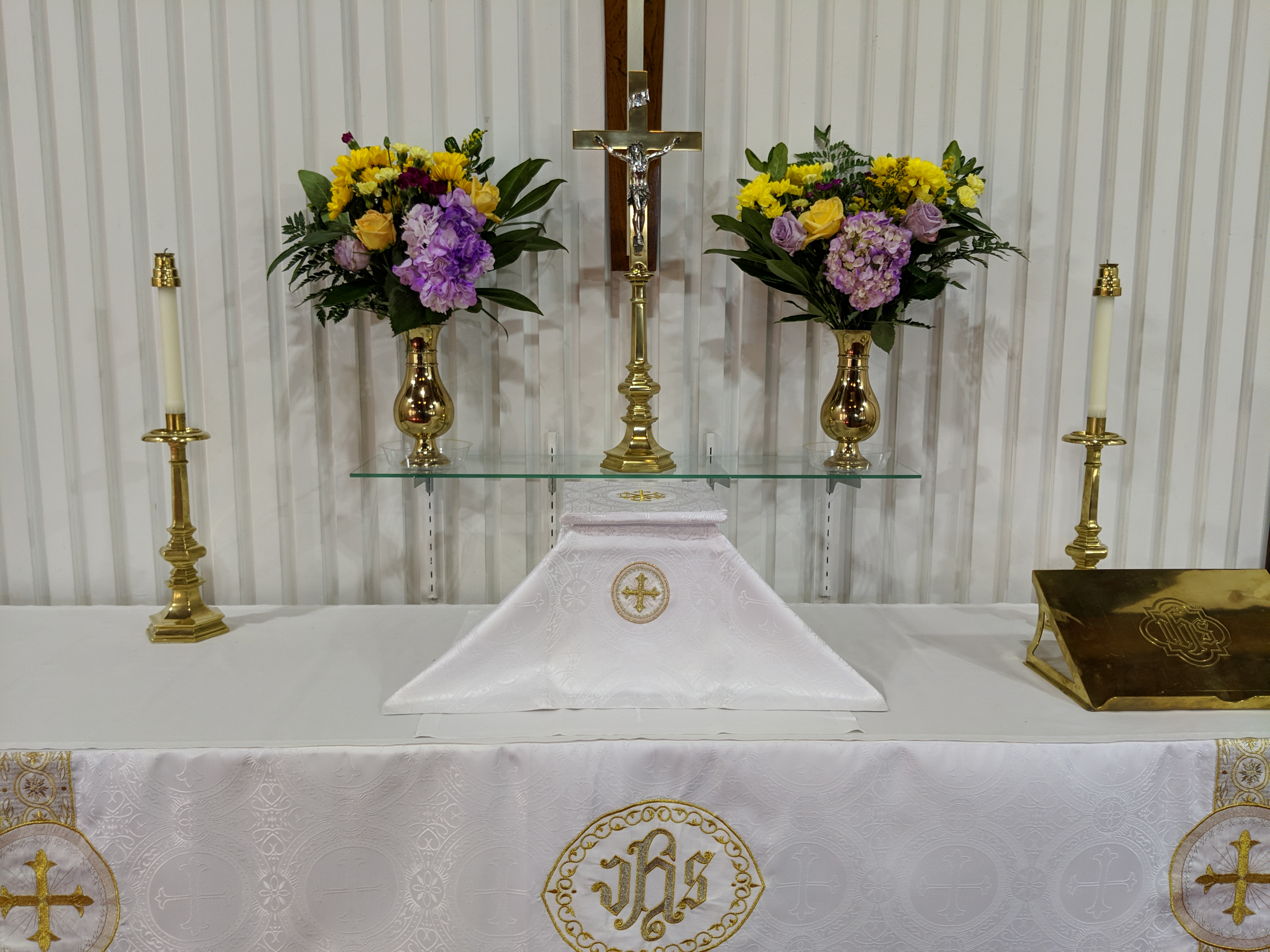(Transcribed by TurboScribe.ai.)
In the name of the Father and of the Son and of the Holy Spirit. Precious in the sight of the Lord is the death of his saints. This is what Psalm 116 says.
So why then, if it’s precious in his sight, does Jesus reverse this? If this is his saint being carried out of Nain, why does he then raise him from the dead? We all have grieved over death coming very near to us, or we still do now. Most certainly, we will. This cannot be denied in this life that death does come near, both to us and to those near to us.
As we get up close and personal with death, as we encounter it, there are two of those encounters that most affect us with grief and sorrow. When it’s our own death that is approaching, we have to consider what to make of it. What lies beyond is God’s word true.
Will he sustain me beyond? But the other aspect is for when we encounter death that strikes oh so near us without it being us ourselves, that of being the death of loved ones, that’s the encounter that we have at Nain. Is yes, this young man, this only begotten son has died. But the focus of this account in Saint Luke is not, well, what about him? We do not hear as we do with Lazarus and the rich man.
Glimpses are beyond of angels ushering him to Abram’s bosom. The contrast, the rich man longing for a cool drop of water. What we see is still the here, the present, the effects on us who are left behind, if you want to put it that way, who still remain, who still have to deal with the harsh reality of death, death as it has come so near.
We may find comfort in times of both, whether we are the the widow’s son entering into death ourselves or we are the widow. We may find comfort in both of those times from the collision of life himself there at the gate of the city of Nain as life clasped with death. Why do we grieve as we do for the ones who are still here, considering the one that has gone on or the ones where there is multiple tragedies? Why do we grieve as we do, especially if the deceased? Let us consider what it means to die a Christian death.
There is no greater comfort in the face of death than when it is a Christian. Death, precious in the sight of the Lord, is the death of his saints. What I mean by that is let’s venture into, well, let’s consider that this widow’s son was a saint and he died.
What then? No greater story could he have now. No greater existence could he have now. Death is behind him.
Tears are behind him. Pain is behind him. Famine, bloodshed, war, all behind him.
His very existence, the very existence of a Christian as soon as he or she steps into death, everything grows beautifully bright, serene, blissful, perfect as that one is ushered into the presence of his Savior. So in that regard, why do we grieve? Why do we grieve? Do we grieve that they’ve got it so good that it is promises fulfilled without end for that loved one now? You see that the grief has no grounds for the loved one now. The grief has no grounds for the loved one.
How could they have it any better? Therefore, when grief encounters us or lays hold of us who are left behind, what is the grief about? It’s about us. Understandably, death is ugly. It’s not, and God did not create death.
He did not make it. And then so when we deal with it and we grieve, why do we grieve? Because we’re the ones here, such as the widow, those who knew the man carrying him out, surely they grieved too. We grieve because we are at a loss.
We are the ones now still here without more time. More time here. But the grief is is most about us.
We are the ones still in this valley of sorrow. We are the ones who still ache. We are the still the ones who still age.
We are the ones who still pop. We’re the ones who still groan. We are the ones who still weep.
That is why we grieve. So when we look then at this historical account from Luke chapter 7, for indeed, we have true history laid out before us just as much as if you were to recount to me what you did yesterday, where you went, with whom you learned, or who you visited, spoke to. That’s true historical fact.
And here we have a historical fact that’s 2,000 years old about a story, an encounter one afternoon, one morning, whatever time of day it was, of something actually happening. And we are given this story with facts. And what are we to gain, though, by these facts, by this information? This information is in the gospel.
It so beautifully delivers the gospel to us. But is that all the gospel is meant to be for us, is this information about what Jesus did some day in the past, or the equivalent of what we had for lunch yesterday that we want to account? Are we to take an historical critical approach to this story about this widow and her only begotten son? Are we to take an historical critical approach to the scriptures and conclude that the greatest thing to take away from this gospel today is that Jesus was really good to this woman, and oh, it was so nice of him that he brightened this widow’s dark day? Here are the facts that we are to consider. There is a city called Nain, true, a widow, meaning she had a husband at one time, but already in her past by this point, he has died.
She was the mother of an only begotten son, and he also just died. There was a large crowd processing to a grave site somewhere outside the city to take this man’s lifeless body in mournful procession to give it back to the earth, ashes to ashes and dust to dust, while the mother continued in weeping, weeping that sure had overcome her, overcome her incessantly since her son breathed his last and now looked at her no more, touched her no more, spoke to her no more. The historical account, though, doesn’t just leave us with a funeral.
As I said, there was a beautiful encounter. There was a dawning of light coming into the darkness. It tells us about a certain someone who also came to the gate of the city with himself a large crowd.
This crowd, having seen where he had been and what he had done at this point, certainly had great mirth, great divine mirth, joy in the Lord at his doing and his word. People likely full of mirth because this someone was the Lord himself in their midst. Oh, what a clash this was.
Great joy meeting great sorrow. Then what does Jesus do? Well, he has compassion. He says, do not weep, reaches out, touches the death chamber, the coffin lying open, that in which is bearing the lifeless body of this loved one.
He commands the dead man arise. Oh, what a beautiful word. The man does this and he begins to speak.
Jesus then does, as Elijah did, gives him back to his mother. Those are the historical facts. A nice story about what Jesus did for a poor widow, is it not? In our grief and experience with death, it is natural, you can say unnatural, being now that the nature is so corrupted, that for us in the fallen flesh, especially considering how our grief centers around us and our loss, for us to ask ourselves, why doesn’t Jesus then do the same for me now, 2000 years later? Why doesn’t he given me my loved one back? Why doesn’t he take away that pain, that sorrow, that grief? Not later, but now, like he gave her.
At least part of the why, as if it’s ever fully explorable by our limited minds, at least part of the answer to the why is revealed to us in the text. If we but search the scriptures and see how this one historical story is part of the narrative that reveals and proclaims what? Proclaims our savior. It is part of the inexhaustible depths and riches and wisdom and knowledge of God that are given to us to delight in discovering, to mining, to inwardly digest, and to believe.
To see such things as this resurrection’s place among six specific others. Let’s go through the list. You heard the first one.
Elijah, the very first resurrection in the scriptures. Elijah raising the widow’s son, Zarephath, laid him on his own bed, stretched himself out over him, called upon the Lord three times to allow this child’s soul to return to his body, gave him back to his mother. Later, Elisha raises the Shunammite’s son.
Then, after Elisha is dead, Elisha, and his bones are in the grave, a dead man is cast into Elisha’s grave, touches his bones, he comes back to life. Those are the first three. Then we get to the New Testament.
Here, the one standing in the middle, the fourth, the raising of the widow’s son at name. Shortly after this, in Luke’s gospel, Jesus goes to Jairus’ house, raises his dead daughter. Then there’s Lazarus, there’s six.
Number seven comes on the day of his crucifixion, where the graves of many saints were opened up and their bodies raised when he entered into death. Seven resurrections leading up to the great eighth, which was that. On the eighth day, Christ rose from the dead.
Creation in its fullest, seven days was made, then subjected to corruption, to death. Death must be defeated. New creation must come.
Therefore, he entered into death and rose again on the third day, on the eighth day, showing that in him is the new creation, the life everlasting. He is the firstborn from the dead. Saint Paul says in Romans chapter six, now, if we died with Christ, we believe that we shall also live with him.
Knowing that Christ, having been raised from the dead, dies no more. Death no longer has dominion over him. Unlike all of the resurrections preceding him, giving glimpses to the one, pointing us to the one that will be forever for all of those who are in him.
This resurrection stands and he is now seated, having ascended at the right hand of his father. The greater gift that Jesus then gives the widow that day is that which is passed down to us, not a son raised from the dead who is still alive among us. Both he and his mother, they are now resting in the grave, awaiting the resurrection as well.
The gift that he passes to us in this historical account, even for us to uncover, to dig, to find the treasure in, do not weep. In the face of death, as it comes so near to us, what kind of God is this who says do not weep? Did he not weep himself? He did at Lazarus’s grave. It’s not that weeping is bad.
You don’t have a coarse, harsh savior who says, who are you to weep as if death is not bitter? That’s not what he’s saying. He doesn’t say, do not ever weep. He’s saying where you have come from, where you have been, what you’ve gone through, the weeping that is warranted.
Do not weep because of the voice that’s telling you do not weep and where it is headed and the death that it will overcome on the eighth day. He says, do not weep himself even three times in the Gospel of Luke. First here, then at Jairus’s house, where he tells the crowd, do not weep for the girl is not dead, but only sleeping.
And they laughed at him, remember? The third one is on this very day, as he makes his way up to defeat death by death and put death to death himself. He’s making his way up to Golgotha, having been scored, bleeding, dropping his precious blood there on the streets of Jerusalem. The women who had been ministering to him were following him, weeping themselves.
It is to them, he turns and says, daughters of Jerusalem, do not weep for me, but weep for yourselves and for your children. Weep for them because, yes, death is hard. Indeed, that’s the temporal aspect that you you will encounter.
Weep for those instead, more so who encounter this death without the gift of faith that you have, without the eyes to see your bleeding and dying saviors, you do weep for them. Because there is true mourning there to be done for those who die outside of Christ. His gift of do not weep.
It extends far beyond the historical facts of the sweet little story from Nain far out. His gift extends far out to us even now, so far removed, extends out to all who have ears to hear the gospel truth that is revealed in this account about this widow and her son. If his word to the widow was do not weep because I’m about to give you your son back for a few more years, then those words were in all actuality, really nothing, a short gift, but definitely not everlasting.
He comes to bring everlasting life, not temporary relief from things that drive us into eternal graves. This only son and his widow mother there at Nain, they still had death ahead of them and it would have remained unresolved. Therefore, the raising of the widow son is given to point us to the greater, more comforting, permanent, eternal gift given by the one who took even this man’s death upon himself and yours as well.
And most comfortingly for us in this age, as we mourn and grieve the death of our loved ones who have died in the Lord there upon him. Jesus comes to do more than to momentarily give us back our loved ones. He shall raise all who believe in him on the last day and for all those who believe in him to live in everlasting righteousness, innocence, and blessedness.
Just as the seven resurrection accounts build up to the greater one, so too are Jesus’s exhortations tied to the same historical event that does reach us. Unlike the widow’s son from Nain, Jesus, the only begotten son of heaven, from heaven died and rose again of his own accord, of his own power he took his life up again. So that all who die with faith in him and all who suffer as loved ones die in him, they have true and certain hope in the one who is the reason in the saying, do not weep.
It is Christ who on the last day, when he returns in glory, he will halt the full funeral procession that day by day processes around this whole cursed globe. He will put it to a halt. He will bring the dead back to life.
He will heal all wounds which death has made. He will reunite all those whom death has separated. That is the comforting hope of the gift of the words, do not weep, for death does not persist unendingly into your future, not even your own, not the ones that strike near to you and strike your heart down, none of them.
They are good words, do not weep, because they are spoken by the very one, the word himself, in whom your death is more than the grief that is left behind here. Spoken by the one in whom the deaths of all those in Christ whom you love is more than the grief and the suffering that you have here. If Jesus has the power to raise the dead through the prophets, the man of God whose word was true in his mouth, if he has the power to raise the widow’s son, Jairus’s daughter, Lazarus, his own beloved friend from the grave, and numerous unnamed saints on the day of his crucifixion, then this same Jesus has the power to take his own life up again himself and to take yours up as well.
And for all of those who die in him, whose death is precious, in his sight precious. This is more than historical fact, we don’t merely just live in space and time looking at things come and go with no meaning, we are comforted by the resurrection and the life himself showing up in our flesh and encountering our death head on here in a glimpse of what was to come in his own. So that in him, baptized into his death shall also be raised into his life.
This is comfort for when we weep, for this is Christ, he the resurrection and the life in whom we have most certain eternal hope for ourselves and for our loved ones who now but sleep in him. In Jesus name.
(Transcribed by TurboScribe.ai.)















Comments are closed, but trackbacks and pingbacks are open.